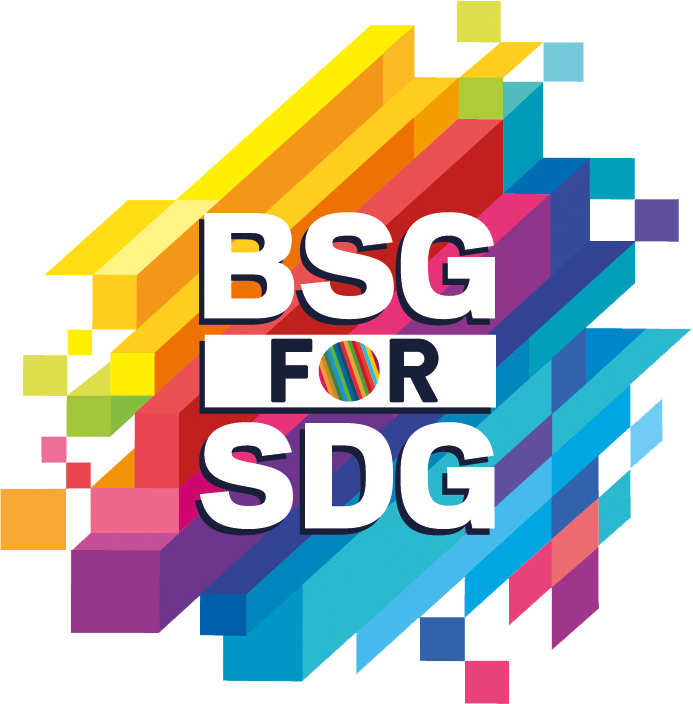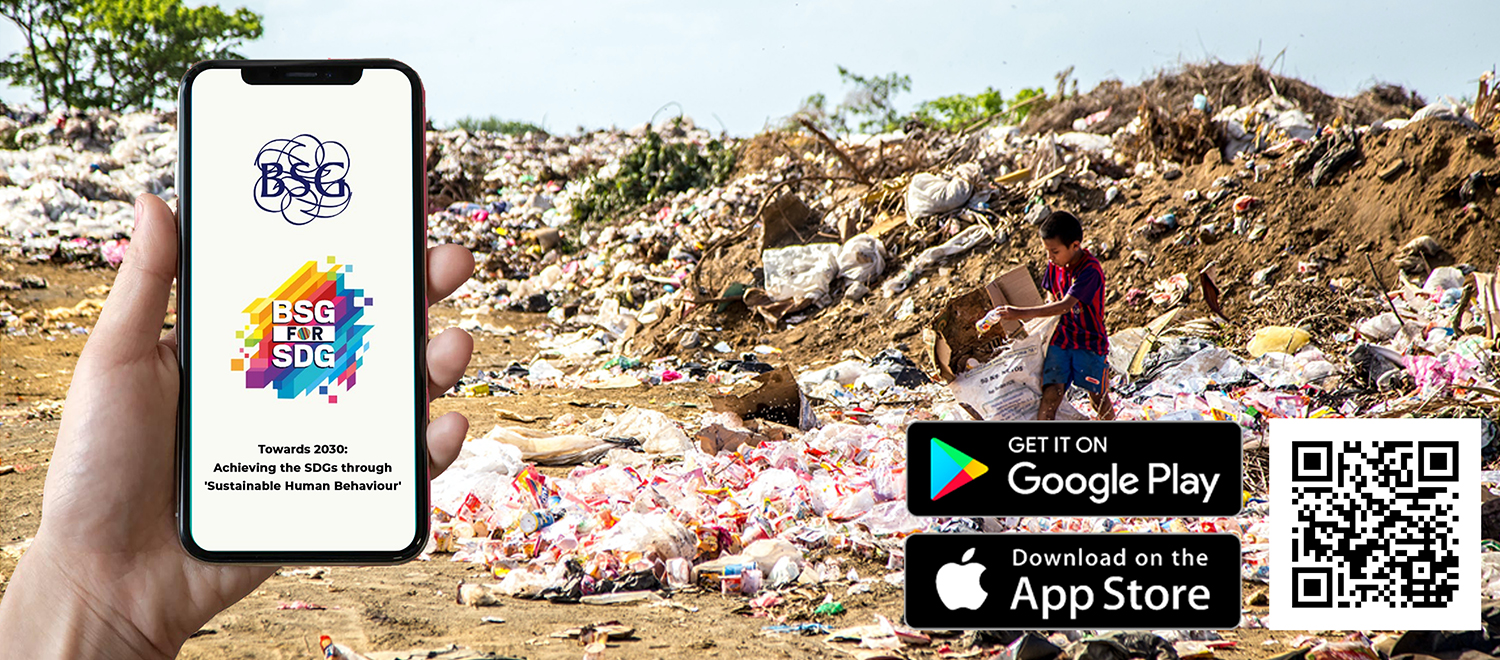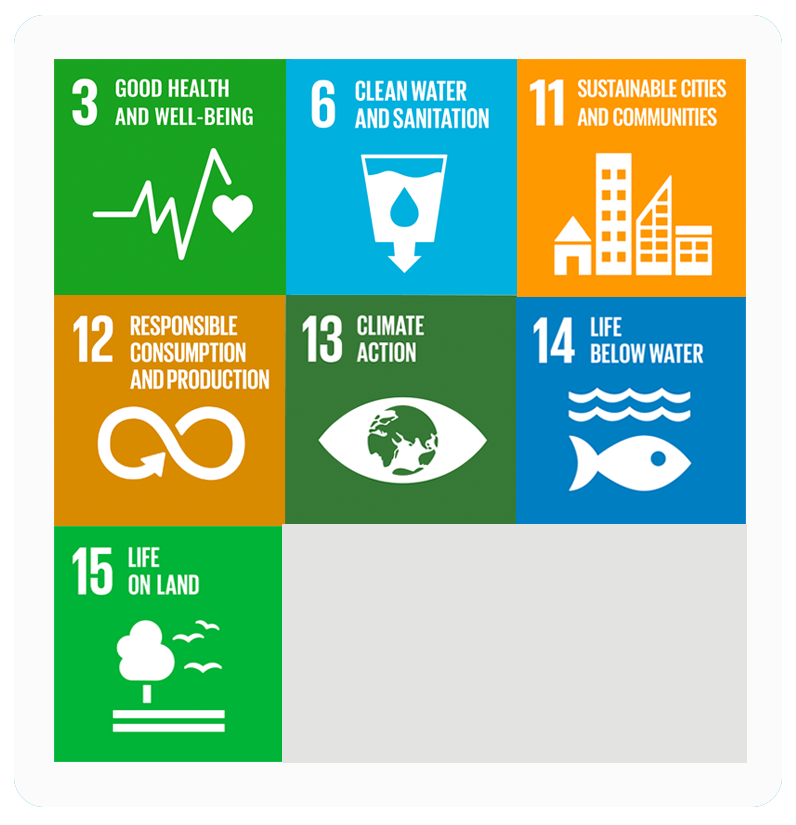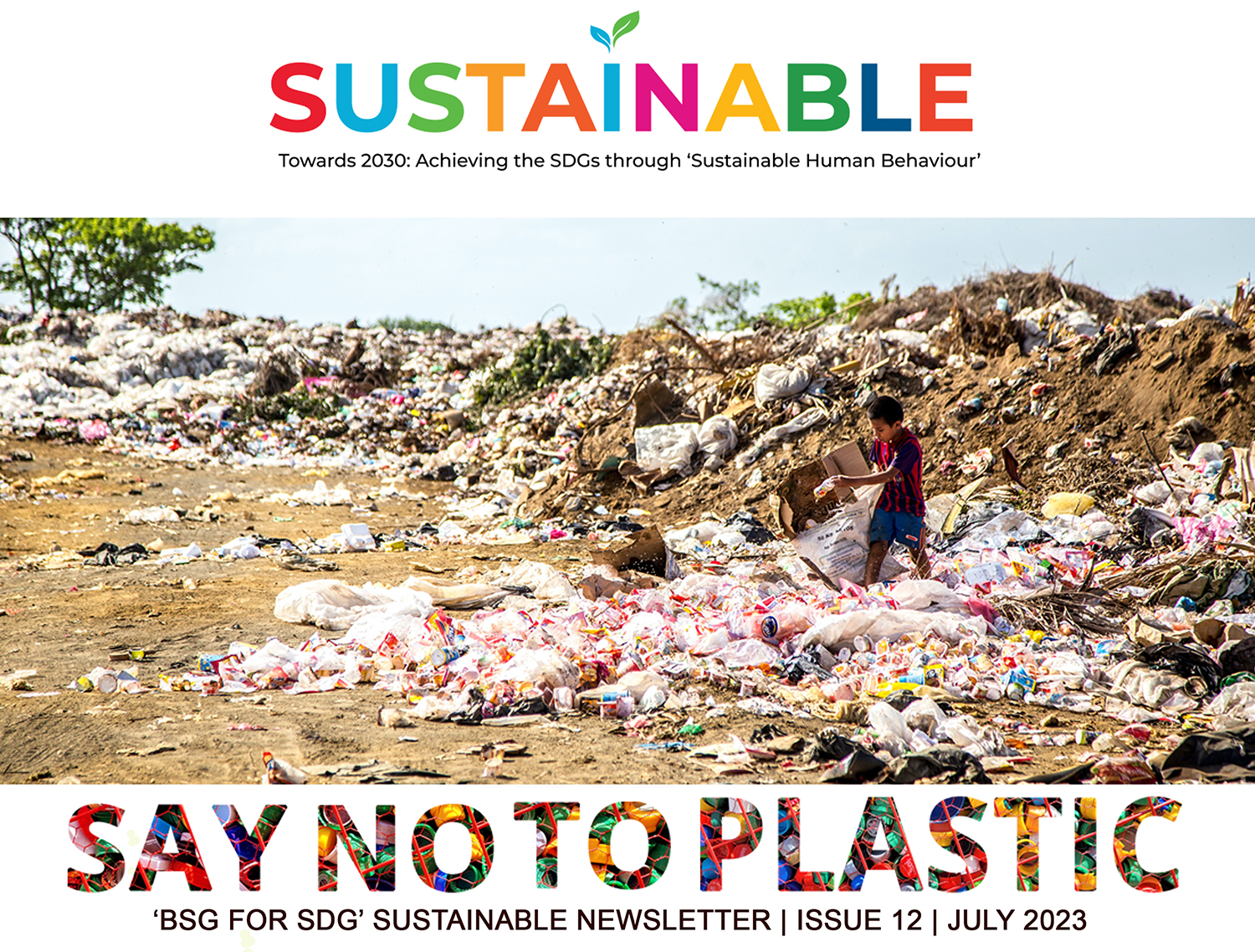
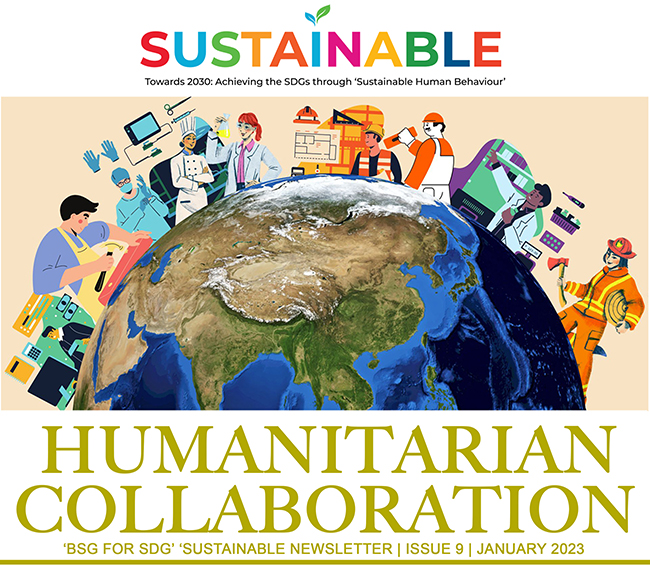
Greetings from BSG Chairperson Mr. Vishesh Gupta
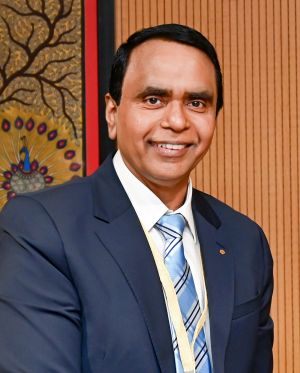
Dear readers,
I extend my heartfelt wishes to you and your families. I hope that you have all experienced a pleasant summer and are now enjoying the serenity of the monsoon season.
The monsoons are a source of vitality and freshness. Nonetheless, the rainy season brings an alternate reality that often eludes our awareness. According to a study, extreme weather events like heavy rainfall and cyclones may be responsible for transporting substantial quantities of plastic debris from India’s coastlines into the oceans. Furthermore, a recent report highlights the alarming reality that over 200 million individuals, predominantly among the world’s most impoverished populations, endure heightened and more frequent floods as a direct consequence of plastic pollution obstructing vital drainage systems.
The omnipresence of plastic in our surroundings is an undeniable truth, and recent scientific investigations have even unveiled the disconcerting presence of plastic within the human body itself. Plastic pollution poses a significant environmental crisis that confronts our modern world. Bearing this grave concern in mind, Bharat Soka Gakkai took the initiative to launch the ‘Say No To Plastic’ Campaign in March 2023, with a specific focus on two crucial objectives: first, refraining from using plastic bags, and second, refusing to use plastic bottles.
Incidentally, the theme for this year’s UN World Environment Day on June 5th, 2023, focused on seeking solutions to combat plastic pollution under the campaign #BeatPlasticPollution.
The month of July is celebrated as ‘Plastic Free July’ by the Plastic Free Foundation. It is a global movement that helps millions of people around the world to be part of the solution to plastic pollution. Towards this, the July issue of the SUSTAINABLE newsletter is centred on the theme ‘Say NO to Plastic’. I hope the content presented in this issue will enable each of you to delve deeper into the profound impact of our lifestyles on the pressing issue of plastic pollution. I implore you to explore this issue with the intent to reflect upon and realise the intricate chains through which this crisis affects our very lives and well-being. Let us empower ourselves to take action in our lives to beat plastic pollution based on the principles of reduce, reuse and recycle. By doing so, we can effectively initiate a series of transformative chain reactions that will bring about positive change within our communities.
Warm Regards
Vishesh Gupta
Chairperson, Bharat Soka Gakkai
Plastic pollution is one of the most pressing environmental issues confronting the modern world. As per a UN Report, globally, more than 400 million tonnes of plastic is produced every year, half of which is single use plastic. Of that, less than 10% is recycled. An estimated 19-23 million tonnes end up in lakes, rivers and seas. Today, plastic clogs our landfills, leaches into the ocean and is combusted into toxic smoke, making it one of the gravest threats to the planet (UNEP). And because plastic takes over 400 years to decompose (break down), it stays in the natural world, causing damage, for a very long time.
Single-use plastics are a major source of pollution, especially marine litter. Approximately 36% of all plastics produced are used in packaging, including single-use plastic products for food and beverage containers, approximately 85% of which ends up in landfills or as unregulated waste (UNEP).
Additionally, some 98% of single-use plastic products are produced from fossil fuel, or “virgin” feedstock. The level of greenhouse gas emissions associated with the production, use and disposal of conventional fossil fuel-based plastics is forecast to grow to 19% of the global carbon budget by 2040. It is estimated that 75 to 199 million tonnes of plastic is currently found in our oceans.
Cigarette butts — whose filters contain tiny plastic fibres — are the most common type of plastic waste found in the environment. Food wrappers, plastic bottles, plastic bottle caps, plastic grocery bags, plastic straws, and stirrers are the next most common items (UNEP).
India too faces a very urgent need to address plastic pollution. Our cities generate close to 3.4 million tonnes of plastic waste every year of which only 30% is recycled, while the rest is disposed of through landfills or aquatic dumps. While many solutions are in the works, it all comes down to the sense of responsibility with which we as individuals look at the issue and its connection with our daily life.
However, merely raising awareness is not enough to change people’s behaviour. The key to successfully phasing out our reliance on single-use plastic products is to change the norm. Policies and campaigns could employ insights from the field of behavioural economics to swing consumers’ decisions in the greener direction, by incorporating nudges, prompts and changing default options, at the cost of minor inconvenience. Defaults and prompts can help to bring our good intentions in line with our actual behaviours.
Eliminating plastic waste is necessary for achieving several SDGs due to their multifaceted impact on our health, environment, economics, production and consumption patterns, health and sustenance of our cities and communities, local economies, marine ecosystem, agriculture, climate action and environmental pollution.
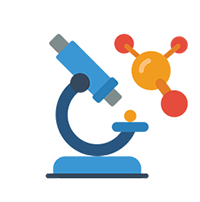
Microplastics
Microplastics (MP) are tiny, granular particles of plastic. They are less than 5 millimetres in diameter, about the size of a sesame seed, or smaller.
There are various ways in which MPs are formed, some of which include: (1) when larger plastic pieces break down into smaller pieces, (2) when resin pellets are used for the manufacturing of plastic bottles and other plastic products, (3) when ‘microbeads’ are manufactured intentionally to be added as exfoliants to health and beauty products like face wash or toothpaste. Another way, and a highly alarming one at that, through which MPs are created, is when we heat our food in plastic containers in the microwave.
Bruce Lanphear, a health sciences professor at Simon Fraser University in Vancouver, shares: “If you dishwash plastics, if you heat them up in the microwave, if you’ve used them for many years, and they’re worn down, all of those will release more microplastics.”
Recent studies have also discovered MPs in table salt, teabags, in takeout food containers, and even in plastic water bottles. Recently, it has also been discovered that MPs have travelled around the globe through the air currents, and they have been found on the top of Mt Everest as well as in the Arctic ice.
All species of this Earth are invariably and involuntarily consuming MPs as a part of their diet, because MPs have penetrated into the soil that grows our food and the water bodies that sustain our life.
While human beings continue to consume plastic on a daily basis, it is yet unknown what could be the long-term effects of daily plastic consumption in humans. Research done on laboratory animals showed that MPs found inside animals led to various forms of inflammation, immunological response, hormonal disruption, alteration of lipid and energy metabolism (which can also lead to obesity), oxidative stress, immunotoxicity and other disorders. Lanphear says that if someone who’s pregnant consumes phthalates and BPA (two of the most common chemicals found in plastic), it could affect development of the embryo. He also shared that these chemicals could affect the fertility in developing males, because BPA is anti-androgenic, that is, it blocks hormones like testosterone.
Given the toxic nature of MPs, it is time to take action to eliminate plastic from our daily life. The famous English adage goes, ‘it is better to be safe than sorry’. If we all take concrete measures to eliminate plastic-made products and plastic-containing products from our environment, we can save our own health, and the health of our future generations.
 To Read
To Read
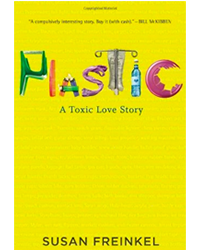
Interview on plastics with science writer Susan Freinkel
In this interview with Susan Freinkel, an award-winning science writer and author of the book Plastic: A Toxic Love Story, we gain insights on how plastic came to be so ubiquitous, its impact on consumerism, and on how plastic pollution can be tackled.
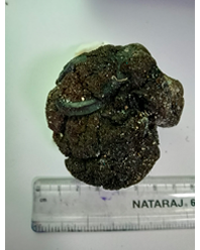
Plastic-rock hybrids found on the Andaman Islands
A recent study found the formation of plastic-rock hybrids in the intertidal zone of remote beaches of Aves Island in the Andaman archipelago – the first record of these hybrid rocks, known as plastiglomerate, from India.

From pollution to solution
The United Nations Environment Programme (UNEP) has built these interesting immersive websites that takes us through the history of plastic, why plastic is harmful not just for human life but also for marine life and the planet’s health, and offers simple steps that we can adopt in daily life to beat plastic pollution. A visual treat and rich in content.
Explore here to beat plastic pollution
Explore here to move from pollution to solution
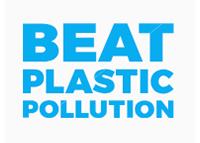
World Environment Day launches a guidebook to offer practical solutions to beat plastic pollution
This year’s World Environment Day on 5th June 2023 focused on bringing forth solutions to #BeatPlasticPollution. The Beat Plastic Pollution Guide launched to commemorate this day provides helpful tips on how we can all be part of the global movement to solve the plastic pollution crisis.
 To See
To See
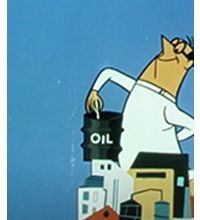
The Story of Plastic
The Emmy Award winning documentary film is a searing exposé, uncovering the ugly truth behind plastic pollution and the false solution of plastic recycling.
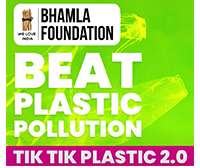
Tik Tik Plastic
On World Environment Day, based on the theme of #BeatPlasticPollution, Indian screen stars and famous musicians came together to create a music video and share video messages to encourage more people to take action against plastic pollution.
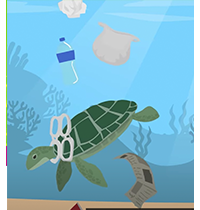
Turning off the Tap: How the world can end plastic pollution and create a circular economy
This short video shares some simple tips on how we can apply the Reduce-Reuse-Recycle formula in our life and in our businesses to create a circular economy and beat plastic pollution.
 To Listen
To Listen
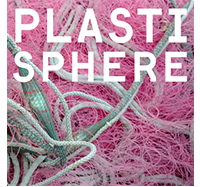
Plastisphere
This is a podcast series on plastic, people, and the planet by Anja Krieger. Each episode explores the issue from a different angle and features a diverse set of voices and viewpoints.
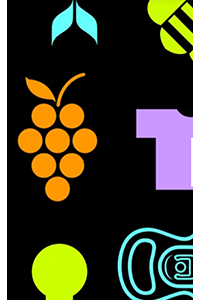
Upstream what? Solutions to plastic pollution
In this episode of The Circular Economy Show podcast series by the Ellen MacArthur Foundation, learn about tackling the root cause of the plastic pollution challenge, i.e., moving upstream.
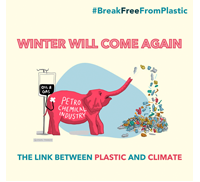
Break Free from Plastic
Explore many more podcasts on plastic pollution curated by #BreakFreeFromPlastic and its members.
 To Play
To Play
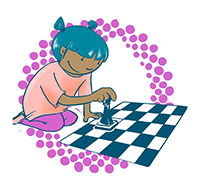
Waste-free fun – Games and activities that teach environmental stewardship
Greenpeace, a global campaigning network, shares these fun games that can be played by students of all age-groups, which also teach valuable lessons about how each one of us can combat plastic pollution in our daily life.

Bleached AZ: The Game – Save our oceans from plastic pollution
Chaos Theory Games and We Are Rad share this fun game to promote ocean health awareness and conservation. In this game ‘Bleached AZ’, players slash and slice away plastics, trawler nets and other hazards to protect the precious coral below.

Plasticity
Plasticity is an innovative puzzle-platformer about a plastic-ridden world and the choices you make to save it. Play as Noa, a curious young girl who leaves her home in search of a better life. Embark on an emotional journey as your actions dynamically change both gameplay and the story. While each decision carries consequences, few are irreversible—you may stumble, you may fall, but only you can save the world.
The menace of plastic pollution can seem far removed from our daily lives, till we go deeper to reflect on how our daily lives are inextricably interconnected with even this challenge. Plastics are made from a concoction of toxic chemicals mixed with oil from fossil fuels. We are exposed to these chemicals and small pieces of plastics called microplastics through the air we breathe, through the food we eat, and through direct skin contact.A study found that on average people could be eating approximately 5 grams of plastic every week, which is the equivalent weight of a credit card. Plastics have also been found in human placentas and the breast milk of mothers – this could not just be coming from plastics in our food, but their ubiquitous presence in our environment.
While research on the health impacts of plastics is still nascent, scientific results so far indicate that plastic causes diseases, disability and premature death at every stage of its life cycle. This includes causing cancer, and even changing hormone activity (known as endocrine disruption) that can lead to reproductive, growth, and cognitive impairment. Many of the toxic chemical additives and microplastics have several other known health impacts through our exposure to them in our environment, and they also bioaccumulate in plants and animals and travel up the food chain – including in the food we consume (Geneva Environment Network).
This information can seem daunting. However, SGI President Daisaku Ikeda’s writings empower us to channelise our frustration constructively towards finding solutions. President Ikeda shares in his 2020 Peace Proposal: “If we concentrate solely on the threats we face, we run the risk that people who feel they are not directly impacted will remain indifferent; even those who recognize the gravity of the threat may be overwhelmed by a sense of powerlessness, concluding that nothing they could do would change the situation.” President Ikeda encourages, that we instead “…develop a shared vision of the world we wish to realise through solving the crisis, and further that we collectively take proactive measures toward the construction of that reality.” He says, “By engaging in the challenge of construction, we find a third path forward, one by which we can avoid falling prey to either an egocentric indifference to problems that don’t directly affect us or a pessimistic paralysis in the face of problems that seem too overwhelming.”
Ultimately, to view the challenge of plastic pollution as a challenge of construction, it is essential for every stakeholder right from those in positions of power and influence to ordinary citizens, to address the root cause in our hearts that makes us part of the problem. This inner reflection and transformation of our own attitude towards our world is what is defined as sustainable human behaviour. In his book, The New Human Revolution, Volume 15, President Ikeda says: “The struggle against environmental pollution is essentially a struggle against the devilish aspect of life that resides in the people’s hearts. The problem cannot be solved without conquering the tendencies of self-interest and egoism of all those involved, whether they are businessmen, academics, government officials or ordinary citizens.”
He further says, “It is not the politicians or businesspeople who should take the initiative in fighting pollution. Rather, the awareness of a unified public will move government and business to act… The development of a grassroots citizens’ movement would become the most important factor in solving the problem of environmental pollution. It is the people who change the course of society and the times. History is transformed when the people become wise and stand up as the protagonists of change.” (ibid.)
It is about time that we look beyond the utility function of plastics in our life, and become aware about the real, invisible cost of not making the switch towards a more sustainable alternative. It is about time that we adopt sustainable human behaviour to overcome the menace of plastic pollution.
Doing things by one’s own handsMayuri Goswami | Women’s Division | Gurugram
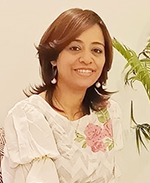
Nine years ago, I attended a health workshop, where I understood the deep linkage between the health of our soil, air, and our own health. As a mother of a young child, the growing landfills at Gurugram and Ghazipur really bothered me. Since then, I started to make conscious choices such as composting and waste segregation, adopting glass & steel bottles, switching natural brands, saying no to plastic bags etc.
In 2021, when BSG launched the ‘BSG for SDG’ campaign I was thrilled, as I understood that my individual actions are actually linked to the UN’s Sustainable Development Goals, thus motivating me to continue on.
Through experience I learnt that these efforts are about building habits and encouraging family members to do so. I adopted a two-bin approach for all my rooms, kitchen and even outdoors; one for paper, other for plastic. I chose to invest in aesthetic looking bamboo baskets which felt less like waste bins. I segregate at the point of occurrence; any dry items collected are sold to scrap dealers later. Sometimes collecting items at home became a challenge and the process kept breaking, but I learnt through the experience. I noticed that the scrap dealers pick up scrap in big bori bags, so I decided to invest in a few, helping collection immensely. However, despite many efforts, I could not eliminate the plastic bin liners as washing the bins without the liners was very tedious.
In March 2023, when BSG launched its ‘Say No to Plastic’ campaign, the UN Advocate for SDGs, Ms. Dia Mirza shared a message in the launch meeting, where she said that research has shown that plastic is found within mothers’ placenta and milk too. This deeply impacted me, and thereafter, I deepened my resolve to take more concrete action.
In the spirit of my mentor SGI President Daisaku Ikeda’s words “Genuine leadership is in doing things by one’s own hand”, I decided to change my habits and wash the waste bin myself each morning while watering plants. On days I am busy, my father helps me out. Seeing us do it on our own, my housemaids also do not hesitate. I also give all the money generated by selling waste to my housemaids which motivates them to support my endeavours.
I learnt simple ways of making newspaper bin liners from YouTube and removed the plastic bin liners for bathroom bins as well. Since April 2023, I have not used any plastic bin liners in my kitchen or bathroom. I have also transitioned to 100% biodegradable sanitary napkins which come with paper disposal bags.
Also in April 2023, on my son’s birthday, we requested the caterers to use regular cutlery, and no plastic water bottles. With summer temperatures rising, I was apprehensive, but my hesitation was unfounded. The children didn’t even notice, and guests never complained. This taught me the important lesson of changing habits without the fear of scorn.
Collectively, just by these three measures, I have saved 11kg of plastic per year from going to the landfill.
Attending the ‘BSG for SDG’ meetings helps me remain focused on my sustainable lifestyle and also clarifies many questions. Now I have started working on the refuse and reduce aspects of plastic usage.
I keep cloth bags in my car and hand purse. At every point of sale, I say no to even paper bags. When vegetable stores insist on packing veggies in plastic to put the price sticker on, I request them to stick it directly on the vegetable. At restaurants and hotels, where it is a norm to place PET bottled water, I request for RO water, telling the staff that I am not allowed to drink from PET bottles, which usually does the trick.
I live in a society with 200 households, many segregating waste and composting at individual level. Taking inspiration from the actions of President Ikeda who has always engaged in dialogues with people around the world to develop friendship, I too am having dialogues with RWA and my neighbours – one person at a time, to figure how we can move to a fool-proof process for the community.
I am truly determined that by 2030 I will build a career in a sustainability role. I will continue my efforts in a focused manner and encourage family and friends to transition towards adopting a sustainable lifestyle, one step at a time.
Creating a sustainable world through personal actionRohit Gupta | Young Men’s Division | Gurugram

I am a software engineer working for an energy company in Gurugram. I became a voluntary member of the Bharat Soka Gakkai in 2008. Through BSG, I encountered my lifelong mentor – SGI President Daisaku Ikeda. The annual peace proposals authored by President Ikeda have particularly left an indelible mark on me. In the 2012 Environment Proposal, President Ikeda described sustainability as a way of life in which we refrain from seeking our happiness at the expense of others; a determination not to pass on our planet to the next generation in a worse condition than how we received it; building a society where optimal choices and decisions are pursued with the interest of our children and grandchildren in mind.
Inspired by these words, I started working towards sustainability to make this world a better place for future generations.
I recognized the adverse effect that plastic was having on our planet and decided to take specific action on it. Focusing on SDG 12 – Responsible Production and Consumption, I have been diligently following the 4Rs viz. Reduce, Reuse, Recycle & Rethink for many years now. The announcement of BSGs campaign of ‘Say No to Plastic’ further strengthened my determination to continue advancing on this path.
To reduce the plastic waste, I have been taking various steps at my personal level. Ever since my college days, I have been carrying a water bottle with me even when I go on trips. I also carry my own steel cutlery, ceramic mug and steel boxes whenever I go out. During my recent overseas trip spanning 17 days, I did not use any plastic bottles or cutlery. When I refused to take cutlery & plastic water bottles on the flight, the airhostess was surprised and remarked that she was witnessing this for the 1st time in her period of service.
I have been using cloth bags for buying fruits, vegetables & grocery. I have also been reducing the usage of food delivery apps; instead, I prefer takeaways as I am able to carry my own boxes to get the food in it and I also carry these boxes even when I eat out to be able to get back the leftover food. More recently, I have started using the newspaper or old pieces of cloth to wrap any gifts.
To reuse the already available plastic at home, I have been using such boxes/ containers to plant new saplings. I have also been reusing the non-woven plastic bags to avoid letting those go to the landfill.
I have also been ensuring that even if any plastic makes way in form of packaging for pulses and other grocery items, those are either given to a rag picker with whom I have been associated since 2022, who further sells it to authorised recyclers, or at times I directly give it to an NGO that operates within Gurugram and have their own recycling plant.
To avoid mindless buying/ usage of plastic, I apply the principle of Rethink wherein at the time of buying any product I look at not just my immediate need but also its complete lifecycle. Also, I live with the motto of MY WASTE MY RESPONSIBILITY.
SGI President Ikeda states: “We must call forth the power of hope from within the depths of each individual’s life. This is the power that can transform even the most intractable reality.”
Keeping this spirit at heart, I have also been engaging in dialogues with my friends, colleagues & acquaintances encouraging them to begin with at least one of these steps at a time. I have also been conducting awareness sessions across my workplace and societies. I am determined to create a sustainable world through my own personal actions.
 SDG Tip for Daily Life
SDG Tip for Daily Life
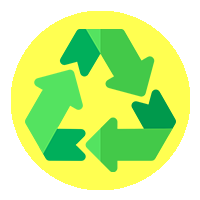
The Natural Resources Defence Council, the National Geographic Kids, and the Plastic Free Foundation websites all share several ways in which we can cut down on the use of plastics, such as giving up the plastic straw, cooking more, having more fruits as snacks, saying no to products with microbeads, and much more!
- 10 ways to reduce plastic pollution by Natural Resources Defence Council
- Top tips to reduce your plastic waste by National Geographic Kids
- What you can do to reduce plastic waste by Plastic Free Foundation
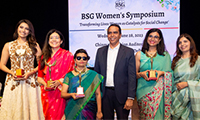
Updates
Bharat Soka Gakkai held its third annual BSG Women’s Symposium on June 28, 2023
The third annual BSG Women’s Symposium was held on 28th June 2023 at the Chinmaya Mission Auditorium, Delhi. The symposium, titled “Transforming Lives: Women as Catalysts for Social Change,” aimed to highlight the pivotal role of women in shaping a better future and the need for women leaders in creating a new age. The symposium brought together a distinguished line-up of speakers who are an example in themselves of women’s leadership. These included: Chief Guest – Dr. Pranjal Patil, District Magistrate of Shahdara District, East Delhi; Keynote Speaker – Ms. Radhika Bharat Ram, Joint Vice Chairperson of The Shri Ram Schools, and Founder of KARM Fellowship for Young Indian Women; Panellists – Ms. Priyanka Bhatia, Co-founder of Women on Wealth; and Ms. Shreya Poonja, Model and First Runner-up of Femina Miss India 2023.
Read more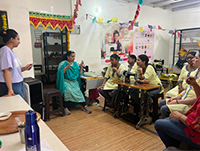
Bharat Soka Gakkai Organized Training Sessions with ‘Pedal On’ to Provide Holistic Development to Women from Underserved Section of Society
On 27 May 2023 and on 24 June 2023, Bharat Soka Gakkai (BSG) organised two more training sessions with Pedal On (an NGO working for empowerment and holistic development of women from the underprivileged section of society). BSG Volunteers imparted lessons to empower the women to manage their work more efficiently. They also learnt about how they can contribute towards preserving the environment through their daily activities.
Read more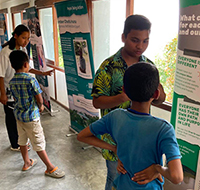
BSG hosts the SOHA Exhibition and forms SDG Clubs at various educational institutes
The ‘Seeds of Hope & Action (SOHA): Making the SDGs a Reality’ – a sustainability focused exhibition was organised by BSG at various educational institutes, including: Gandhi Ashram School, Kalimpong on June 3, 2023; and at Raiganj University, West Bengal on June 30, 2023. BSG has conducted a total of 60 SOHA Exhibitions across schools and colleges till date.
SDG Clubs were also formed by BSG in two additional institutes, namely, The Cambridge International School, Harlur, and The Cambridge International School, Varthur. With this, the total number of SDG Clubs formed by BSG goes up to 16 till date.
BSG is conducting the SOHA exhibition and forming SDG Clubs in institutes with a vision to advance ‘Sustainable Human Behaviour’ among the students of schools and colleges, who will in turn lead the way in taking steady and consistent action to create a more sustainable world.
Read moreContact Us
 Any queries or suggestions regarding the newsletter can be addressed to sdg@bharatsokagakkai.org
Any queries or suggestions regarding the newsletter can be addressed to sdg@bharatsokagakkai.org
 To know more about the ‘BSG for SDG’ initiative, visit the BSG for SDG website
To know more about the ‘BSG for SDG’ initiative, visit the BSG for SDG website
 Download the ‘BSG for SDG’ mobile app with the carbon footprint calculator
Download the ‘BSG for SDG’ mobile app with the carbon footprint calculator
